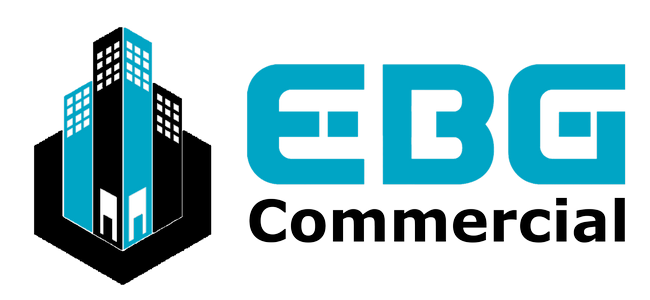Retail Trends in DFW: What Property Managers Need to Know
The retail landscape in Dallas-Fort Worth (DFW) is evolving rapidly, shaped by a confluence of economic factors, technological advancements, and shifting consumer behaviors. As a property manager, staying abreast of these trends is essential to effectively manage and market retail spaces. This blog post explores the key retail trends in DFW that property managers need to be aware of, providing insights into how to navigate this dynamic market.
The Rise of Experiential Retail
One of the most significant trends in the DFW retail market is the shift towards experiential retail. Consumers are increasingly seeking unique and engaging in-store experiences that go beyond traditional shopping. This trend is driven by the desire for memorable experiences, social interaction, and the ability to engage with products in a tangible way.
What This Means for Property Managers:
- Tenant Mix: Curate a diverse mix of tenants that offer experiential elements, such as interactive product demonstrations, workshops, or entertainment options.
- Space Design: Collaborate with tenants to create flexible and adaptable spaces that can host various activities and events.
- Marketing: Promote the unique experiences offered by your retail tenants to attract foot traffic and build customer loyalty.
The Growth of E-commerce and Omnichannel Retail
E-commerce continues to grow, and retailers are increasingly adopting omnichannel strategies to integrate their online and offline operations. In DFW, many retailers are enhancing their physical stores to support their e-commerce operations, using them as fulfillment centers for online orders or offering services like click-and-collect.
What This Means for Property Managers:
- Logistics: Ensure your retail properties have the infrastructure to support omnichannel operations, such as dedicated spaces for curbside pickup and efficient loading and unloading areas.
- Technology: Invest in technology solutions that help tenants manage their inventory and streamline their supply chain processes.
- Collaboration: Work closely with tenants to understand their omnichannel strategies and provide the necessary support to implement them effectively.
The Demand for Sustainable and Eco-Friendly Retail Spaces
Sustainability is becoming a priority for consumers and retailers alike. In DFW, there is a growing demand for eco-friendly retail spaces that align with sustainable business practices. This includes energy-efficient buildings, sustainable materials, and waste reduction initiatives.
What This Means for Property Managers:
- Green Building Practices: Incorporate sustainable design and construction practices into your properties, such as energy-efficient lighting, HVAC systems, and water conservation measures.
- Certifications: Pursue green building certifications, such as LEED, to demonstrate your commitment to sustainability and attract environmentally conscious tenants.
- Tenant Engagement: Encourage and support tenants in implementing their own sustainability initiatives, such as recycling programs or green product lines.
The Importance of Data-Driven Decision Making
Data analytics is playing an increasingly important role in the retail industry. Retailers are using data to gain insights into consumer behavior, optimize their operations, and enhance the customer experience. For property managers, leveraging data can provide valuable insights into tenant performance, property usage, and market trends.
What This Means for Property Managers:
- Data Collection: Implement systems to collect and analyze data on foot traffic, sales performance, and customer demographics within your properties.
- Tenant Support: Share relevant data with tenants to help them make informed business decisions and improve their operations.
- Strategic Planning: Use data to guide your property management strategies, such as identifying high-performing tenants, optimizing space utilization, and planning future developments.
The Evolution of Retail Formats
The traditional retail format is evolving, with new concepts emerging to meet changing consumer preferences. In DFW, this includes the rise of pop-up shops, shared retail spaces, and mixed-use developments that combine retail with residential, office, and entertainment components.
What This Means for Property Managers:
- Flexibility: Design retail spaces that can accommodate different formats and uses, allowing for easy reconfiguration as tenant needs change.
- Collaboration: Partner with developers and other stakeholders to create mixed-use projects that offer a diverse range of amenities and attract a broad customer base.
- Innovation: Stay open to innovative retail concepts and be willing to experiment with new ideas to keep your properties relevant and competitive.
The Impact of Economic and Demographic Trends
Economic and demographic trends are shaping the retail landscape in DFW. The region’s strong economy, population growth, and diverse demographic profile are driving demand for retail spaces. Additionally, the influx of young professionals and families is influencing retail preferences and spending patterns.
What This Means for Property Managers:
- Market Research: Conduct thorough market research to understand the economic and demographic trends in your area and how they impact retail demand.
- Targeted Leasing Strategies: Tailor your leasing strategies to attract tenants that cater to the specific needs and preferences of the local population.
- Community Engagement: Engage with the local community to build relationships and understand their needs, helping you create retail spaces that resonate with the community.
Embracing Technology and Innovation
Technology is transforming the retail industry, from advanced point-of-sale systems to augmented reality shopping experiences. In DFW, tech-savvy consumers expect retailers to offer seamless and innovative shopping experiences that leverage the latest technology.
What This Means for Property Managers:
- Tech Infrastructure: Ensure your properties have the necessary infrastructure to support advanced technology, such as high-speed internet and robust security systems.
- Tenant Support: Assist tenants in implementing technology solutions that enhance the customer experience, such as mobile payment options or virtual fitting rooms.
- Innovation Hubs: Consider creating innovation hubs within your properties, where retailers can pilot new technologies and concepts in a real-world setting.
Conclusion
The retail landscape in DFW is dynamic and constantly evolving, driven by a range of economic, technological, and consumer trends. As a property manager, staying informed about these trends and adapting your strategies accordingly is crucial to maintaining the competitiveness and appeal of your retail spaces. By embracing experiential retail, supporting omnichannel strategies, prioritizing sustainability, leveraging data, and staying open to new retail formats and technologies, you can position your properties for success in this vibrant market.
Staying ahead of these trends not only helps you attract and retain high-quality tenants but also enhances the overall shopping experience for consumers, ultimately contributing to the long-term success and vitality of the retail sector in DFW.


